MercoPress. South Atlantic News Agency
Tag: global warming
-
Saturday, September 9th 2023 - 21:48 UTC
Climate situation “spinning out of control”, UN Guterres
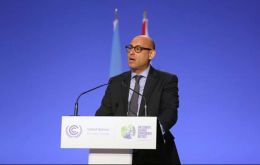
The world is way off course to decrease global warming, the United Nations warned on Friday, urging for more action to phase out fossil fuels and achieve the 2015 Paris climate agreement goals.
-
Monday, April 18th 2022 - 09:13 UTC
Record high temperature recorded in Antarctica

Recent measurements in Antarctica have reflected the effects of global warming when an unprecedented 34°C temperature was detected, thus setting a new record, it was reported. The findings stemmed from sensors attached to rocks in Fildes Bay in the coastal zone.
-
Wednesday, August 18th 2021 - 09:17 UTC
HMS Protector heads for new adventures in Antarctica
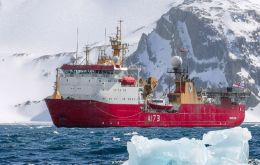
The Royal Navy's sole icebreaker HMS Protector is sailing for the Antarctic, her first visit to the frozen continent since 2019. With the UK about to be the focus of international efforts to tackle climate change as it hosts the UN COP26 conference in Glasgow, the unique survey/research ship will continue her work supporting scientists from around the world to study the impact of global warming.
-
Tuesday, May 18th 2021 - 09:01 UTC
Study shows Greenland ice melting might become irreversible soon
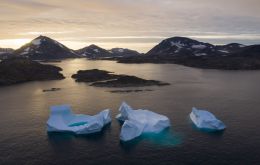
A new study released Monday by the German Potsdam Institute for Climate Impact Research (PIK) has warned that due to the rising temperatures, the destabilization of icy central-western areas of Greenland has already begun and that melting could then continue in the current global warming scenario.
-
Thursday, March 11th 2021 - 09:18 UTC
Pacific small islands fear rising seas will distort their claims to EEZs
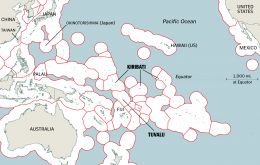
Small island states in the Pacific are opening a new front in the fight against rising seas, to secure rights to an ocean area bigger than the moon that is home to billion-dollar fish stocks.
-
Friday, January 8th 2021 - 08:48 UTC
Atmosphere carbon dioxide forecasted to reach 50% higher than before the industrial revolution
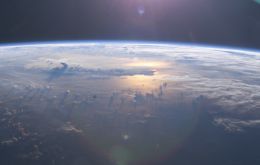
Human activity will push concentrations of planet-warming carbon dioxide in the atmosphere to levels 50% higher than before the industrial revolution this year, breaching a symbolic climate change threshold, the UK's Met Office forecast on Friday.
-
Thursday, October 1st 2020 - 08:59 UTC
Doha Agreement on greenhouse gases extended to the Falklands

The Falkland Islands Government received official confirmation from the UK Government at the end of August, that the Foreign Secretary had agreed on the extension of the Doha Amendment to the Falkland Islands.
-
Wednesday, September 2nd 2020 - 08:15 UTC
Pope Francis urges nations to fight global warming: “creation is groaning”
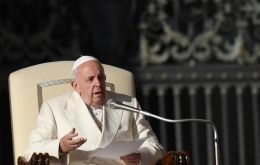
Pope Francis on Tuesday urged nations to fight global warming according to the 2015 Paris climate accord, weighing in on issues that figure in the US presidential race. Modern society had pushed the planet beyond its limits and the time to fix a climate emergency was running out, he said.
-
Wednesday, April 29th 2020 - 09:36 UTC
Ozone layer hole over the Arctic has closed and has been linked to Europe's warmest winter

The largest hole ever observed in the ozone layer over the Arctic has closed, says Copernicus' Atmospheric Monitoring Service. Scientists spotted signs in late March of a rare hole forming and it was thought to be the result of low temperatures at the north pole.
-
Monday, March 23rd 2020 - 06:43 UTC
World Water Day, everyone has a role to play, Antonio Guterres
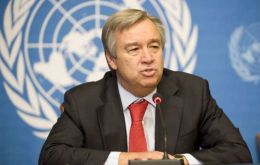
The world’s water resources are under unprecedented threat. Today, some 2.2 billion people lack safe drinking water and 4.2 billion people live without access to adequate sanitation. Unless we act with urgency, the impacts of climate change are projected to exacerbate these figures. By 2050, between 3.5 and 4.4 billion people will live with limited access to water, with more than 1 billion of them living in cities.
